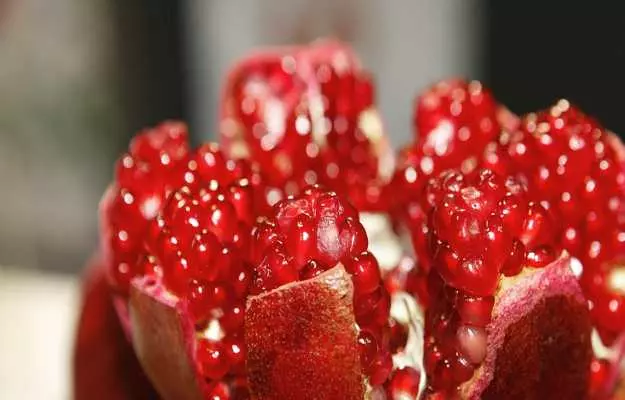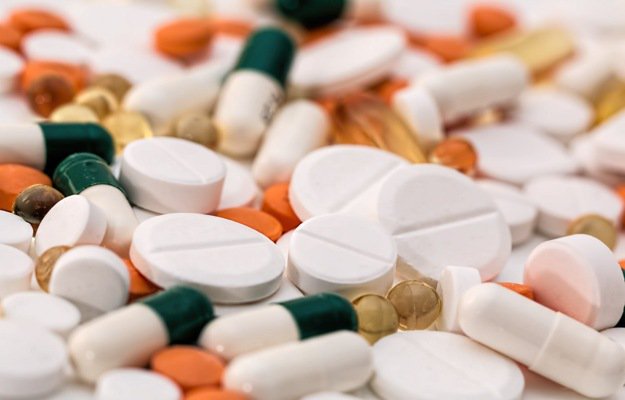Pomegranate is a subtropical fruit belonging to the family Lythraceae. Commonly called as Anaar in Hindi, pomegranate is loved for its delicious and juicy taste. But that is not all that this fruit has to offer. Pomegranate is rich in potassium and vitamin C, low in calories and an amazing source of fibre. Fresh juice of the pomegranate contains high amounts of polyphenols, a type of antioxidant found in most fruits - anthocyanins, ellagic acid, and tannins. All of these bioactive ingredients make pomegranate a "superfood" which could be an excellent supplement for boosting overall health. It aids in dealing with conditions like upset stomach, conjunctivitis, menopausal hot flashes, osteoarthritis, and hemorrhoids. Additionally, it's a very effective anti-inflammatory and immunomodulating agent. In fact, it is known as the " apple with many seeds" due to the many benefits it provides for the health.
The pomegranate is a ruby red coloured fruit with a crown on its head. It can easily acclimate humid tropical climates and the Mediterranean and needs a long and hot growing season to mature properly. It grows in deep loamy soil but may tolerate a variety of soils. Pomegranates are in season from September to February in the Northern Hemisphere and March to May in the Southern Hemisphere. The pomegranate fruit encloses numerous small jewel-like edible seeds which have a distinct crunch and sweetness to it. They are variedly used in both sweet and savoury dishes including smoothies, wines, cocktails, meal garnishes, salads, baking and in juices.
It might interest you to know that in ancient cultures the peel of pomegranate was used to dye leather and pomegranate blossom was crushed to create a red dye. It is considered a sacred fruit in some beliefs and an apt offering to certain Greek deities. In Hinduism, pomegranate seeds are considered a symbol of fertility abundance. Was it just faith? Maybe or Maybe they too knew the miracles these tiny seeds are.
Some basic facts about Pomegranate:
- Botanical Name: Punica granatum
- Family Name: Lythraceae
- Common Name: Anaar, pomegranate
- Sanskrit name: दाडिमं Dāḍimaṁ
- Parts used: The bark, the trunk, the fruits, the flowers and the leaves all parts of the pomegranate tree are useful
- Native and geographical distribution: The pomegranate originated from Iran to the Himalayas in northern India and was cultivated over the whole Mediterranean region since ancient times. It is widely cultivated across India and the drier parts of southeast Asia, the East Indies, Malaya, and tropical Africa. In 1769, the Spanish settlers introduced this tree into California. In the US, it is grown for its fruits mainly in the drier parts of California and Arizona. The most important growing regions are China, Bangladesh, India, Pakistan, Japan, Egypt, Iran, Iraq, Israel, Afghanistan, Burma and Saudi Arabia.
- Interesting facts: You can store pomegranates for up to two months in the refrigerator.
The pomegranate trees live for over 200 years.











































